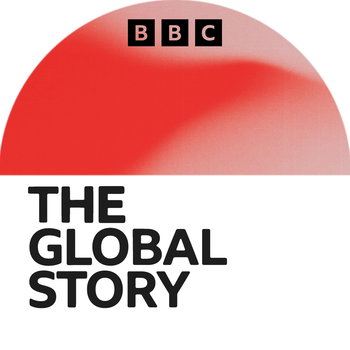
Pope Joan
Loading player...
Melvyn Bragg and guests discuss a story that circulated widely in the middle ages about a highly learned woman who lived in the ninth century, dressed as a man, travelled to Rome, and was elected Pope.Her papacy came to a dramatic end when it was revealed that she was a woman, a discovery that is said to have occurred when she gave birth in the street. The story became a popular cautionary tale directed at women who attempted to transgress traditional roles, and it famously blurred the boundary between fact and fiction. The story lives on as the subject of recent novels, plays and films.With:Katherine Lewis, Honorary Professor of Medieval History at the University of Lincoln and Research
Associate at the University of YorkLaura Kalas, Senior Lecturer in Medieval English Literature at Swansea UniversityAnd Anthony Bale, Professor of Medieval & Renaissance English at the University of
Cambridge and Fellow of Girton College.Producer: Eliane GlaserReading list:Alain Boureau (trans. Lydia G. Cochrane), The Myth of Pope Joan (University of Chicago Press, 2001)Stephen Harris and Bryon L. Grisby (eds.), Misconceptions about the Middle Ages (Routledge, 2008), especially 'The Medieval Popess' by Vincent DiMarcoValerie R. Hotchkiss, Clothes Make the Man: Female Cross Dressing in Medieval Europe (Routledge, 1996)Jacques Le Goff, Heroes and Marvels of the Middle Ages (Reaktion, 2020), especially the chapter ‘Pope Joan’Marina Montesano, Cross-dressing in the Middle Ages (Routledge, 2024)Joan Morris, Pope John VIII - An English Woman: Alias Pope Joan (Vrai, 1985)Thomas F. X. Noble, ‘Why Pope Joan?’ (Catholic Historical Review, vol. 99, no.2, 2013)Craig M. Rustici, The Afterlife of Pope Joan: Deploying the Popess Legend in Early Modern England (University of Michigan Press, 2006)In Our Time is a BBC Studios Audio production
Associate at the University of YorkLaura Kalas, Senior Lecturer in Medieval English Literature at Swansea UniversityAnd Anthony Bale, Professor of Medieval & Renaissance English at the University of
Cambridge and Fellow of Girton College.Producer: Eliane GlaserReading list:Alain Boureau (trans. Lydia G. Cochrane), The Myth of Pope Joan (University of Chicago Press, 2001)Stephen Harris and Bryon L. Grisby (eds.), Misconceptions about the Middle Ages (Routledge, 2008), especially 'The Medieval Popess' by Vincent DiMarcoValerie R. Hotchkiss, Clothes Make the Man: Female Cross Dressing in Medieval Europe (Routledge, 1996)Jacques Le Goff, Heroes and Marvels of the Middle Ages (Reaktion, 2020), especially the chapter ‘Pope Joan’Marina Montesano, Cross-dressing in the Middle Ages (Routledge, 2024)Joan Morris, Pope John VIII - An English Woman: Alias Pope Joan (Vrai, 1985)Thomas F. X. Noble, ‘Why Pope Joan?’ (Catholic Historical Review, vol. 99, no.2, 2013)Craig M. Rustici, The Afterlife of Pope Joan: Deploying the Popess Legend in Early Modern England (University of Michigan Press, 2006)In Our Time is a BBC Studios Audio production


